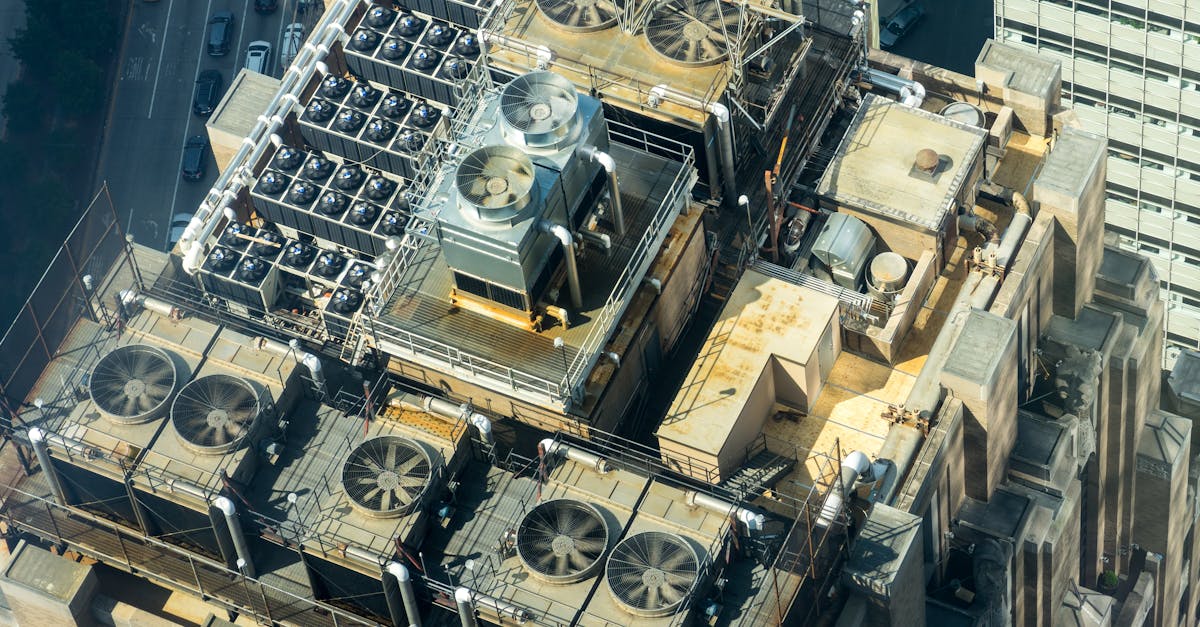
The Refrigeration Cycle
The refrigeration cycle is a process that allows heat to be removed from one area and transferred to another. This cycle operates through four main components: the compressor, condenser, expansion valve, and evaporator. The compressor pressurizes refrigerant gas, increasing its temperature as it moves to the condenser. Here, the gas releases heat and condenses into a liquid. This liquid then passes through the expansion valve, where its pressure and temperature drop, turning it into a low-pressure, low-temperature mixture.
The final step occurs in the evaporator, where the refrigerant absorbs heat from the surrounding environment, transforming back into gas. This cycle repeats continuously, creating a cooling effect. Proper understanding of this system is crucial for effective operation. Regular maintenance can help prevent breakdowns, making services like Refrigeration System Installation and Repair in essential for ensuring optimal performance and longevity of the equipment.
Steps in the Refrigeration Process
The refrigeration process starts with the evaporator, where the refrigerant absorbs heat from the environment. As heat is extracted, the refrigerant converts from a liquid to a gas, allowing the system to remove unwanted warmth. This phase is critical for cooling spaces, whether in residential or commercial settings. Proper functioning of the evaporator relies on regular maintenance, making it essential to consider professional services for efficiency.
Following the evaporator, the compressor takes center stage. It compresses the gas, raising its pressure and temperature, and propels it into the condenser. In the condenser, the gas releases the absorbed heat and returns to a liquid state. This transition is pivotal for completing the cycle and ensuring effective cooling. Specialized knowledge in refrigeration systems is vital, which is why many homeowners and businesses seek Refrigeration System Installation and Repair in their locality to maintain optimal performance.
Energy Efficiency in Refrigeration
Energy efficiency in refrigeration is crucial for reducing operational costs and minimizing environmental impact. Modern systems are designed to use less energy while maintaining optimal cooling performance. High-efficiency compressors, advanced insulation, and energy-saving refrigerants play significant roles in enhancing efficiency. Regular maintenance helps identify issues that can lead to energy loss, ensuring that the system operates at peak performance.
Refrigeration System Installation and Repair in commercial settings often focus on maximizing energy efficiency. Proper sizing of equipment, along with effective layout and placement, can significantly influence overall performance. Using programmable thermostats and monitoring systems can optimize temperature settings and further reduce energy consumption. Implementing these strategies not only lowers energy bills but also extends the lifespan of the refrigeration equipment.
Key Factors Affecting Energy Consumption
Energy consumption in refrigeration systems is influenced by several key factors. The efficiency of the compressor plays a significant role as it is one of the most energy-intensive components. A well-maintained compressor can operate more efficiently, reducing overall energy use. Additionally, the ambient temperature and humidity levels affect how hard the system must work to maintain the desired cooling, leading to variations in energy consumption.
Proper insulation of the refrigerated space is crucial for minimizing energy loss. Any leaks or poor insulation materials can lead to increased workload for the refrigeration system, resulting in higher power usage. Regular maintenance checks are vital for identifying and resolving these issues. Seeking professional assistance for Refrigeration System Installation and Repair in a timely manner can help ensure that the system performs efficiently, ultimately lowering energy consumption and operational costs.
Common Refrigeration System Issues
Refrigeration systems are complex, and their efficiency can be impacted by various issues. Common problems include refrigerant leaks, compressor failures, and improper airflow. Each of these issues can lead to decreased performance and higher energy costs. Recognizing these signs early can help in mitigating more serious complications down the line, ensuring not only the longevity of the system but also its efficacy in maintaining the desired temperature.
For those facing problems with their refrigeration system, seeking professional assistance is essential. Refrigeration System Installation and Repair in a timely manner can address these issues effectively and prevent recurring problems. Original manufacturers often provide specific troubleshooting guides that can assist technicians in identifying and rectifying system faults. Regular maintenance checks will also help in reducing the risk of significant failures, enhancing overall operational reliability.
Troubleshooting and Prevention
Regular maintenance is crucial for the optimal functioning of refrigeration systems. Issues such as refrigerant leaks, compressor failures, and thermostat malfunctions can lead to increased energy consumption and reduced efficiency. Early detection of these problems can prevent costly repairs and downtime. Implementing a routine inspection schedule ensures that potential issues are addressed before they escalate. Keeping the system clean and ensuring proper airflow around the coils also plays a significant role in maintaining efficiency.
For those needing assistance, professional services specializing in Refrigeration System Installation and Repair in various settings are invaluable. Technicians typically perform thorough diagnostics to identify issues accurately. They provide guidance on best practices for system upkeep. Businesses that rely heavily on refrigeration can benefit from scheduled maintenance plans. This proactive approach not only enhances system longevity but also optimizes energy use, leading to better overall performance.
FAQS
What are the four main components of a refrigeration system?
The four main components of a refrigeration system are the compressor, condenser, expansion valve, and evaporator.
How does the compressor function in a refrigeration system?
The compressor pumps the refrigerant through the system, raising its pressure and temperature as it circulates.
What role does the condenser play in the refrigeration cycle?
The condenser cools and condenses the refrigerant from a gas to a liquid by releasing heat to the surroundings.
Can you explain the function of the expansion valve?
The expansion valve regulates the flow of refrigerant into the evaporator, reducing its pressure and temperature as it enters.
What is the purpose of the evaporator in the refrigeration system?
The evaporator absorbs heat from the environment, causing the refrigerant to evaporate and thereby cooling the surrounding area.
